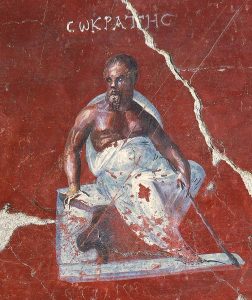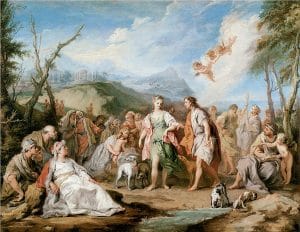Blog Titles
ToggleThe Comedy of Errors - Ephesus
The play is a modernized adaptation of Menaechmi by Plautus. As William Warner’s translation of the classical drama was entered into the Register of the Stationers Company on 10 June 1594, published in 1595, and dedicated to Lord Hunsdon.
The patron of the Lord Chamberlain’s Men, it has been supposed that Shakespeare might have seen the translation in manuscript before it was printed – though it is equally possible that he knew the play in the original Latin, as Plautus was part of the curriculum of grammar school students.
The play contains a topical reference to the wars of succession in France, which would fit any date from 1589 to 1595. Charles Whitworth argues that The Comedy of Errors was written “in the latter part of 1594” based on historical records and textual similarities with other plays Shakespeare wrote around this time. The play was not published until it appeared in the First Folio in 1623.
About The Comedy of Errors
Synopsis
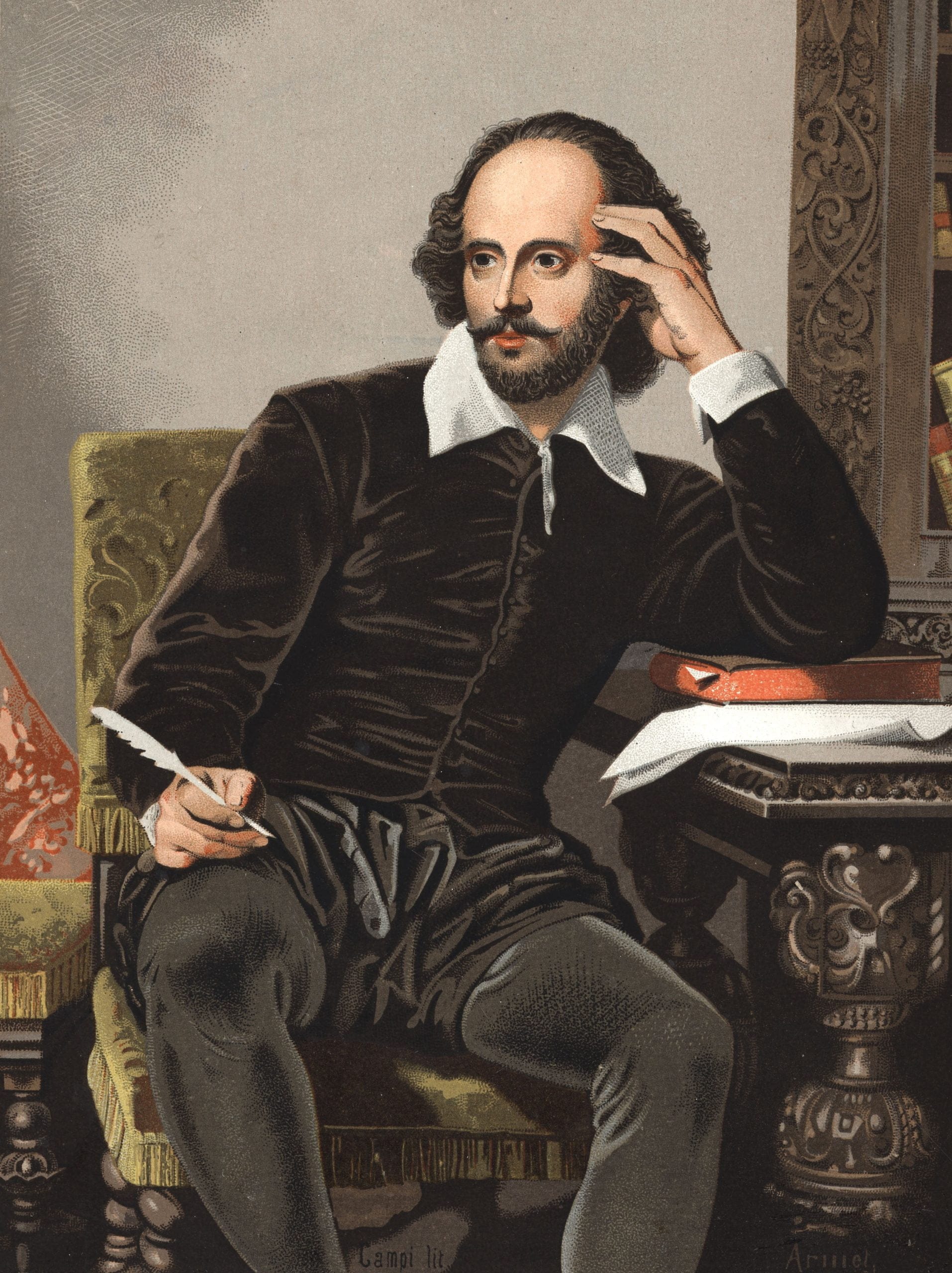
A family with their twin sons and their twin servant infants were separated at sea because of a shipwreck.
Antipholus (son) and Dromio (servant) of Syracuse stayed with Egeon, the father, whilst Antipholus and Dromio of Ephesus stayed with Emilia, their mother.
On a quest to find his brother and mother, Antipholus of Syracuse and Dromio visits Ephesus.
Upon their arrival, the town suffers a series of confusing incidents as the town members mistake Antipholus and Dromio (S) for their twins (E).
For instance, Luciana (Antipholus of Ephesus’ wife) is dining with Antipholus (S).
So, when her real husband, Antipholus (E), returns home, he is locked out for “unknown reasons”.
At the end of the play, it is revealed that the town’s confusions were due to the two sets of twins running around.
So, the family reunites, and Antipholus (S) married Luciana.
Act I
The play occurs during a conflict between the classical cities of Ephesus in the Persian Empire (now Turkey) and Syracuse (a Greek city in Sicily). Due to the conflict between Ephesus and Syracuse, there is a law that forbids Syracusian merchants from entering Ephesus. So, when Egeon, a Syracusian merchant, is found in Syracuse, the Duke arrests him and condemns him to “1000 marks”.
However, Egeon claims that he is searching for his lost twin son and wife. He says that almost 25 years ago, Egeon had twin sons with his wife Emilia.
On the same day, another woman gave birth to twin boys but she was unable to raise them.

So, Egeon bought the twin boys as slaves for his twins. The family and the slaves went on a sea voyage. However, there was a shipwreck. Egeon managed to save 1 twin infant and a slave, whilst Emilia held onto the other twin son and twin slave. They were rescued by different boats and were separated since then.
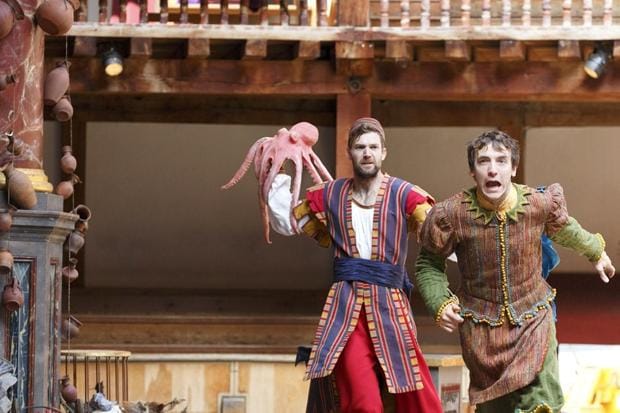
When Antipholus of Syracuse (who was raised by Egeon) turned 18, he leaves with his slave, Dromio of Syracuse, to search for his brother and mother.
However, 7 years pass and Egeon hasn’t heard from his son. So, he ventures on his journey to search for his family.
The Duke is moved by the story. So, he gives Egeon 1 day to raise enough money to pay for his ransom to make up for the “1000 marks”.
Coincidentally, Antipholus (From Syracuse) and Dromio (From Syracuse) visit Ephesus on the same day.
Unbeknownst to them, their twin brothers live in Ephesus. This is where the confusion and the fun, begin. Antipholus (S) sends Dromio (S) to deposit money and bring his luggage to an inn.
Almost immediately, Dromio (Ephesus) finds Antipholus (S) and asks him to return home to his wife for dinner. Antipholus (S), confused, denies that he has a wife and asks Dromio (E) about the money. The servant is clueless about it, so they argue. When Antipholus (S) slaps Dromio (E), the servant runs home to Adriana.
Antipholus (S) now thinks that the town is bewitched and his servant is under a spell.
Act II
Meanwhile, Dromio (From Ephesus) tells Adriana that her husband, Antipholus (From Ephesus), refuses to go home. She claims that he must be with other women.
When Antipholus (S) arrives at the inn, he finds that his money and belongings are safe. So, confused about the earlier incident with Dromio (E), he goes on a stroll in the town. There, he finds his Dromio (S) who has no recollection of the earlier incident. Dromio (S) begins to joke around to calm Antipholus (S) down.
Here, Adriana and Luciana find Antipholus (S) and Dromio (S) joking together. Thinking that they are Adriana’s husband and slave, Adriana mistakenly accuses Antipholus (S) of infidelity and forces the two confused men back to her house for dinner.
Antipholus (S) dines with Adriana and Luciana whilst Dromio (S) guards the home. Meanwhile, Adriana’s real husband returns to his home with Dromio (E) and a merchant, Balthasar, and a goldsmith, Angelo. However, Dromio (S) and Adriana refuse to let him in, thinking that Antipholus is already home.
Antipholus (E) leaves with the merchant and goldsmith. Later, Antipholus (E) visits a Courtesan at the tavern. He originally intended to gift the gold chain to Adriana. However, he decides to gift it to the Courtesan once he receives it from the goldsmith.

Back at the house, Antipholus (S) falls in love with Luciana and professes his love. She is appalled at his behavior, still believing that he is her sister’s husband. Meanwhile, in the kitchen, Dromio (S) is mistaken to be a maid’s husband. He is horrified because she is fat and ugly. The slave finds his master and the two have a good laugh at all the confusing events.
Act III-IV
The goldsmith gives Antipholus (S) the gold chain, thinking that he is Antipholus (E). He says that he will collect the payment later.
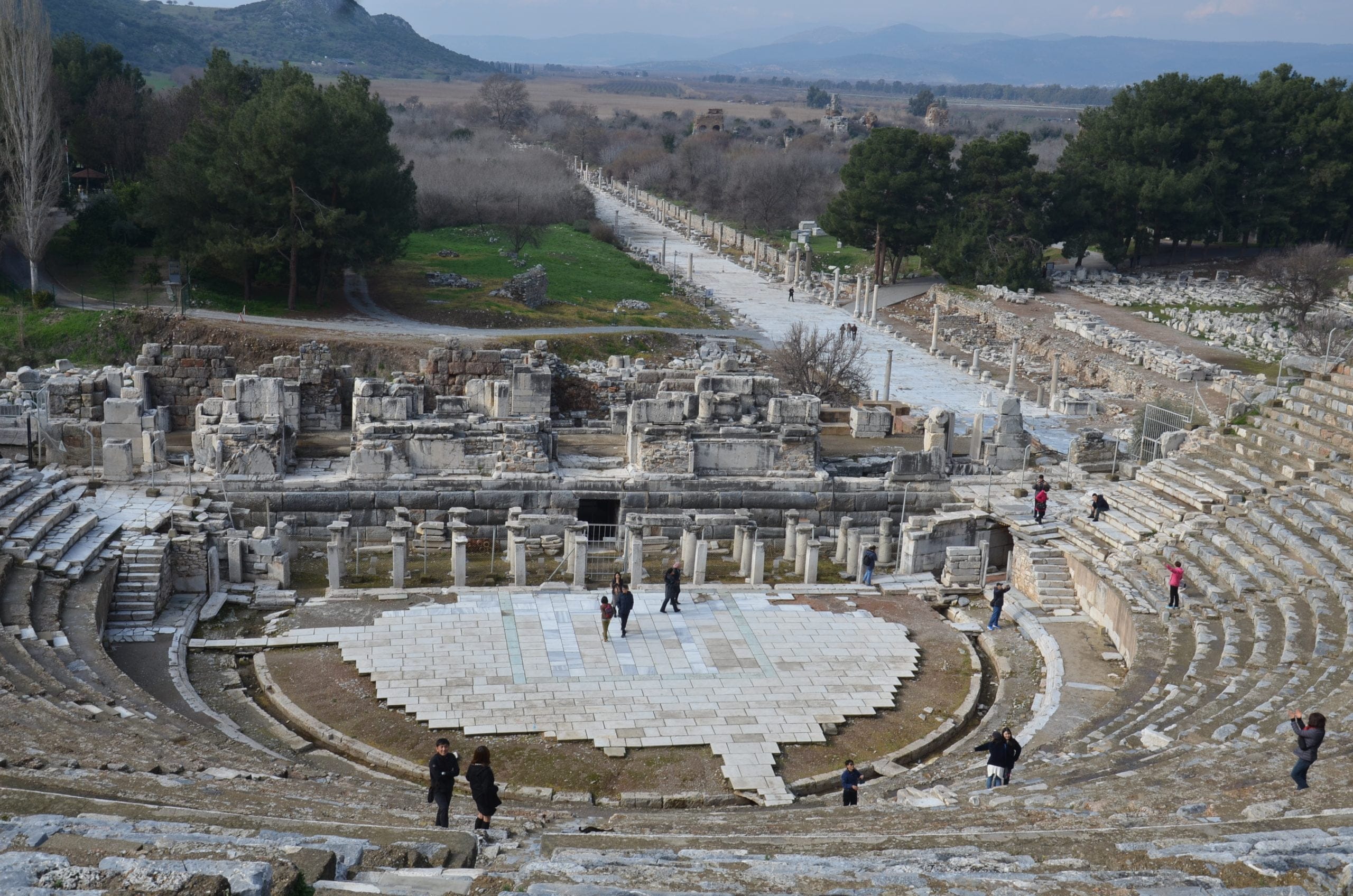
Later, when the goldsmith finds Antipholus (E) in the streets he asks for payment. However, since Antipholus (E) never received the gold chain, he refuses to pay for it. This causes him to be arrested. Dromio (S) happens to stumble on everything, and Antipholus (E) asks him to ask Adriana for gold for his bail gold.
Dromio (S) goes home to tell Adriana that Antipholus is arrested and needs bail money. Adriana gives Dromio (S) gold to free Antipholus (E). However, Dromio (S) finds Antipholus (S) in the streets and gives him the gold for his bail money. Antipholus (S) is unaware of what is happening.
Meanwhile, Dromio (E) finds Antipholus (E) in the custody office. Antipholus (E) asks for the gold that Dromio (E) does not have. This sends Antipholus (E) into a rage. At this moment, Adriana, Luciana, and an exorcist (Dr. Pinch) arrive. They share their version of the story (that Antipholus dined at home), whilst Antipholus (E) and Dromio (E) claim otherwise.
Antipholus and Dromio (E) are tied up and taken to their home with the exorcist. However, immediately after, Antipholus and Dromio (S) are running around town with the swords, which causes everyone to think that the two men escaped.
Act V
Since it is nearing the end of the day, the Duke is taking Egeon to execute him (1000 marks).
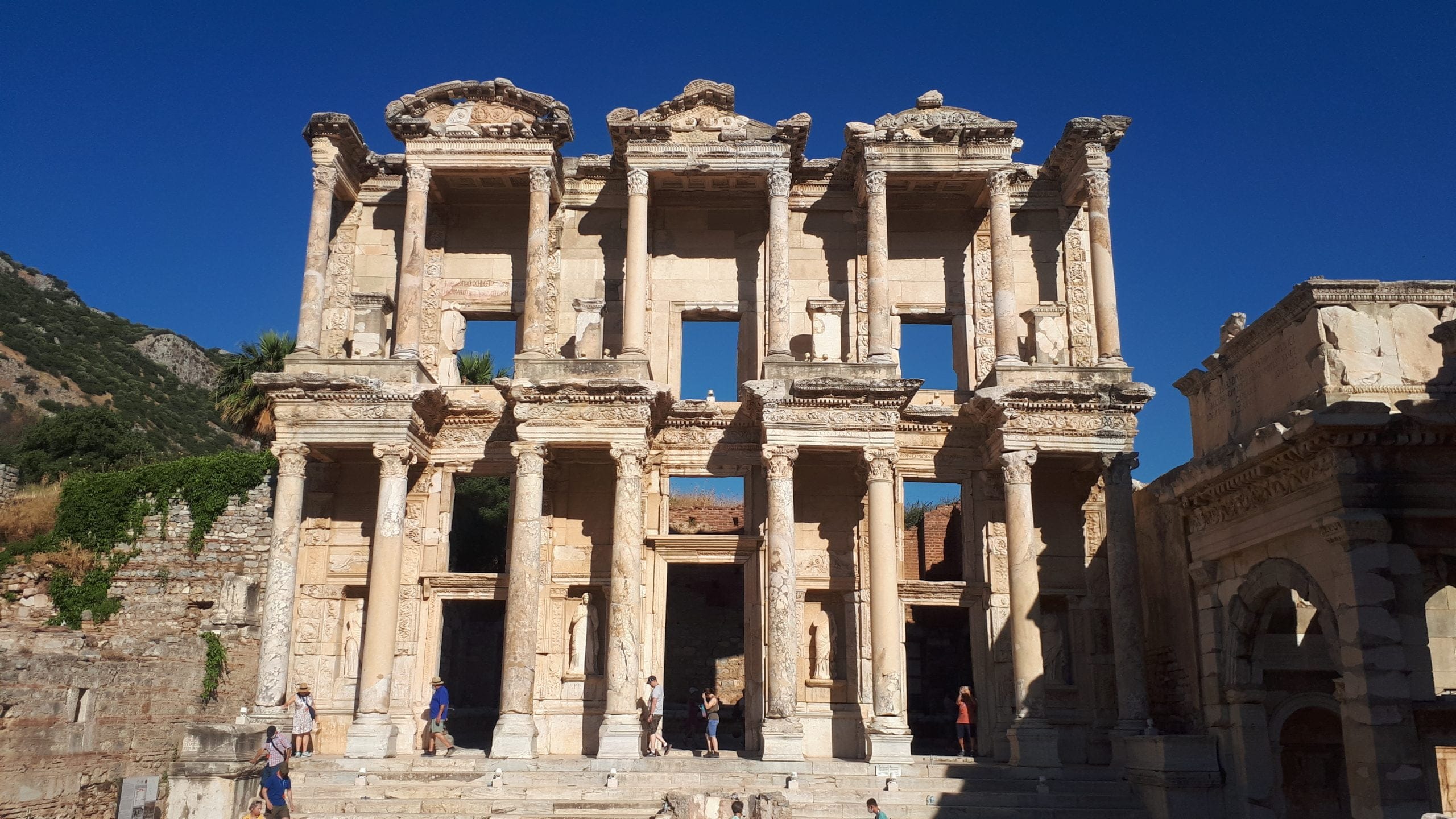
At this moment, Adriana asks the Duke to help her husband. Meanwhile, a messenger comes to tell the Duke that the two men escaped the exorcist. Adriana refuses and claims that the men are still tied up at the abbey.
At the same time, Antipholus (E) comes in angry that he was locked out of his house, arrested, and exorcised. Egeon, thinking that this is his son, greets him. However, Antipholus claims that he doesn’t know Egeon.
Finally, Emilia, the Abbess, enters with Antipholus and Dromio (S). She claims that she is Egeon’s wife, and the family is reunited.
All the confusing incidents finally make sense and order are restored.
The Comedy of Errors - Characters
Solinus – Duke of Ephesus
Egeon – A merchant of Syracuse – father of the Antipholus twins
Emilia – Antipholus’ lost mother – wife to Egeon
Antipholus of Ephesus and Antipholus of Syracuse – twin brothers, sons of Egeon and Emilia
Dromio of Ephesus and Dromio of Syracuse – twin brothers, bondmen, each serving his respective Antipholus
Adriana – wife of Antipholus of Ephesus
Luciana – Adriana’s sister, love interest of Antipholus of Syracuse
Nell/Luce – kitchen wench/maid to Adriana, Wife of Dromio of Ephesus
Balthazar – a merchant
Angelo – a goldsmith
Courtesan
First merchant – a friend to Antipholus of Syracuse
Second merchant – to whom Angelo is in debt
Doctor Pinch – a conjuring schoolmaster
Gaoler, Headsman, Officers, and other Attendants
Brief info about The Comedy of Errors
The Comedy of Errors, five-act comedy by William Shakespeare, written in 1589–94 and first published in the First Folio of 1623 from Shakespeare’s manuscript. It was based on Menaechmi by Plautus, with additional material from Plautus’s Amphitruo and the story of Apollonius of Tyre.
The play’s comic confusions derive from the presence of twin brothers, unknown to each other, in the same town. Its twists of plot provide suspense, surprise, expectation, and exhilaration and reveal Shakespeare’s mastery of construction.
Egeon, a merchant of Syracuse, is arrested in Ephesus because of hostilities between the two cities and, unable to pay the local ransom, is condemned to death. He tells the duke, Solinus, his sad tale: years earlier he and his wife had been shipwrecked with their infant sons, identical twins, and a pair of infant servants, also identical twins.
The parents, each with a son and a servant, were rescued but then permanently separated. Antipholus of Syracuse, the son raised by Egeon, has for five years been seeking his mother and brother, while Egeon in turn has been seeking his missing son. Egeon’s story wins from Solinus a day’s respite to raise the ransom money.
Meanwhile, Antipholus of Syracuse (with his servant, Dromio) has arrived in Ephesus, not knowing that his brother Antipholus of Ephesus (with his own servant, also named Dromio) is already there.
A series of misidentifications ensue. Antipholus of Syracuse is entertained by his brother’s wife and woos her sister; he receives a gold chain meant for his brother and is chased by a goldsmith for nonpayment.
He and his servant hide in a priory, where they observe Egeon on his way to execution and recognize the priory’s abbess as their mother, Emilia. The play ends happily with Egeon’s ransom paid, true identities revealed, and the family reunited.


